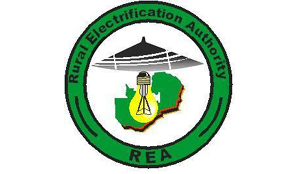 FOR some time now, there has been an outcry from people in rural areas especially those in the newly-created districts to be connected to the national electricity grid to boost economic activities and also generally improve their livelihoods.
FOR some time now, there has been an outcry from people in rural areas especially those in the newly-created districts to be connected to the national electricity grid to boost economic activities and also generally improve their livelihoods.
Government has promised to provide electricity to the whole nation with the rural areas being the main targets and tasked the Rural Electrification Authority (REA) to drive this project.
REA has been scaling up its efforts in ensuring that electricity projects are implemented within schedule across the nation and sometimes even go to extents of cancelling deals for some contractors who delay in completing their tasks.
Several rural areas have since benefitted from this programme whose blueprint is the Rural Electrification Master Plan (REMP) with the main targets being public facilities, commercial undertakings and surrounding areas.
Government has been constructing and commissioning rural electrification projects in various parts of the country.
Last week, Government commissioned the Tobacco Board of Zambia (TBZ) and Big Concession Grid extension Projects in Mumbwa and new district, Nkeyema at a cost of K82.3 million.
The TBZ and the Big Concession Grid Extension Projects are meant to provide electricity to more than 6,800 households,19 schools and six rural health centres in the two districts.
This will indeed spark greater opportunities for economic expansion and service delivery in the two districts as observed by Mines, Energy and Water Development Deputy Minister, Charles Zulu.
Mr Zulu indicated that the commissioning of the projects showed Government’s desire to empower the rural communities with necessary developmental tools.
The implementation of such projects showed Government’s growing interest and commitment to improving the livelihoods of people in rural areas.
It is therefore now a challenge for the communities benefiting from this programme to come up with some business initiatives which will help improve their income levels.
He said the two projects which were initiated in 2011 had taken long to complete due to technical challenges which were eventually sorted out.
The TBZ and the Big Concession Projects, which were initiated in 2011 but took long to complete due to technical challenges, are one of the biggest that Government has ever undertaken with support from the European Union.
It is also pleasing to see that REA is prioritising locals when implementing projects in these areas.
REA’s decision to recruit locals will help in promoting a sense of ownership by the beneficiaries, resulting in reduced cases of vandalism.
This programme will go on until all rural areas in Zambia have been electrified by either the extension of the national grid or other forms of energy like solar by the year 2030.
With the full implementation of this project, it is anticipated that there will be a lot of economic activities some on a micro scale such as farming, carpentry, retail trading and maize milling across the nation.
This will also create a positive change in the social sectors such as education and health.






